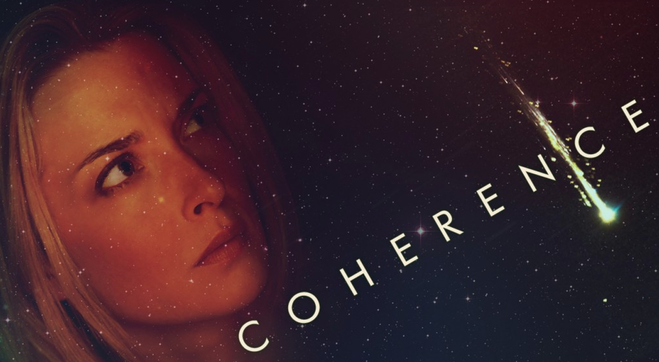By Stéphanie JoallandWe all have big ideas and we want to make big movies and would like to go from WHIPLASH to FIRST MAN in a few short years like Damien Chazelle. But the reality is Chazelle is very much the exception to the rule and many writers get burnt out as they struggle to get their scripts produced in spite of winning top competitions and getting their work optioned. That doesn't mean you shouldn't write big projects and reach for the stars, just that it wouldn't hurt to have small films that you know can get made. That's when micro-budget films come into play. Admittedly what qualifies as “micro-budget” is a little fuzzy (see what Steven Follows has to say on the topic) but the bottom line is they are movies made with money you can realistically secure under your present circumstances. Micro-budget films aren't just for writer-directors. Producers are craving scripts they could produce well on a small budget. The lower the budget the easier it is to recoup the cost, which is more appealing for them. Although micro-budget scripts present clear advantages in terms of feasibility it's often challenging for directors and producers to find scripts that can be truly made on a low-budget – let alone a micro-budget – so it seems that a lot of screenwriters are unaware of the reality of turning their vision into a film. So, the tips below would be a good place to start to remedy the situation: 1. Think like a producer...Write with a producer's cap on even if you aren't planning on producing yourself. Is it a story that could really be made on a budget without massive compromises that would be detrimental to the story? Not all projects should be made on a micro-budget. So give your script an honest reality check and if you aren't savvy about production talk to filmmakers and take stock of the requirements of your project. While the budget of your micro-budget script can always balloon like the DISAPPEARANCE OF ALICE CREED or BURIED you can't always scale back your high-concept project so it's always a good idea to set strict parameters at the outset so that you can make the creative limitations work to your advantage taking into account all the resources you have at your disposal (including what you can access at your day job for example!). 2. Ensure it's a script you are passionate about...It's not because you can shoot a script on an I-Phone over two weeks that you should do it. Regardless of the budget between the production process and the festival run, it's going to be one or two years of your life you won't get back. The process of making a feature film is incredibly involving so make so make sure you believe in your project. Of course if you aren't planning on producing and directing yourself that's less of concern but let's face it, in the micro-budget world chances are you are a bit of an hybrid between an entrepreneur and an artist (and if you aren't it's time to become one). 3. It's okay to think big...Movies like COHERENCE which was shot over five nights and explore big ideas in a compact format are gold dust as they transcend the limitations of low-budget filmmaking and take full advantage of the fact they have creative control and can experiment with bold ideas. 4. It's not because you can shoot your script cheaply that you should overlook the development process...Movies with 2, 3 main characters are incredibly hard to write. Many of the breakthrough micro to low-budget films out there are the product of years spent in development. Small gems like A GIRL WALKS ALONE AT NIGHT and BLUE RUIN don't emerge fully baked, their auteurs spent years crafting their scripts and it shows. 5. Make each character count...The fewer the better. The fewer characters you have, the more screen time they have and the better you can develop them and actors love the opportunity to have a great character to sink their teeth into. Use the hyper-connected world to your advantage to be able to add more characters without having to bring them on set. There is so much you can do with a phone like in Chris Sparling's BURIED and modern technology can offer cheap solutions to tell your stories. Look at the clever use of technology in the Danish Oscar entry THE GUILTY co-written by Gustav Möller and Emil Nygaard Albertsen who manage to keep their audience on the edge of their seat with a policeman in a call center, a phone and computer screens. 6. Contained locations but you can still move around...The fewer locations the better of course so the first examples of contained movies that cross your mind might be TAPE and EXAM and the aforementioned BURIED which manages to squeeze actual action pieces in a coffin. But it's not because you are making a micro-budget film that you should necessarily contain your story to ONE location. Ask yourself what locations you have at your disposal and write around them, WEEK-END being a good example of that, or LOCKE where the character is stuck in a moving car throughout the whole film which makes the whole experience cinematic. Just avoid locations you don't have full control over. 7. Keep it short anD SWEET...I read a lot of micro-budget scripts which are 110 pages, which means the directors will often end up shooting ten pages per day if they only have ten days to shoot. So I recommend you edit the hell out of your script and be ruthless with it. Aim for 90 pages maximum. 8. Don't assume that because you don't have money it should be all talk-talk-talk...There are so many ways of making things visual on a budget and keep the characters moving. Making a micro-budget film doesn't necessarily mean you have to film a stage play. Look at BLUE RUIN and its incredible visual opening. It's not because you are making a micro-budget film that you should strip away all your great locations and shot ideas that can elevate your piece. 9. Understand your industry context and the marketplace...Be clear at the outset about your goal. Are you writing your film for yourself, the festival circuit, the commercial circuit or both and be realistic and knowledgeable about the prospects of a small movie in today's indie landscape. Study similar films (“comparables”). Again, even if you aren't a producer it wouldn't hurt to have clarity about the marketplace while boldly embracing the fact you can take a risk with your story or cast that you wouldn't be able to take when more people are investing in your film and want to have a say in the creative process. Show us a white-sheeted ghost wandering in a house if you please like in A GHOST STORY. 10. Beware of SFX and VFX...If you as a writer/director or your director are a specialist in VFX then fine, you can write a story in the vein of MONSTERS but if you are not, just know you are in for a steep learning curve so refrain from relying on VFX and what will happen in post-production. Embrace your limitations in a creative way and plan ahead like Mike Cahill who spent a long time carefully designing the otherworldly visuals of ANOTHER EARTH before going to camera.
It's just a starting point of course but a good place to start to make the most out of your minuscule budget.
2 Comments
Anne Crilly
14/2/2019 11:09:16 am
good succinct advice. Do you ever run the micro features workshops over 3 days eg at film festivals?
Reply
Fenella Greenfield
15/2/2019 11:59:57 am
Anne hi - I'm replying on behalf of Stephanie as she's at the Berlin Film Festival. We are often invited to run courses at festivals - so if you have something in mind, please don't hesitate to get in touch at
Reply
Leave a Reply. |
BLOGTHE ONLY PLACE TO TALK ABOUT THE CRAFT OF SCRIPTWRITING.
|
Privacy Policy © Euroscript Limited 2020




 RSS Feed
RSS Feed


